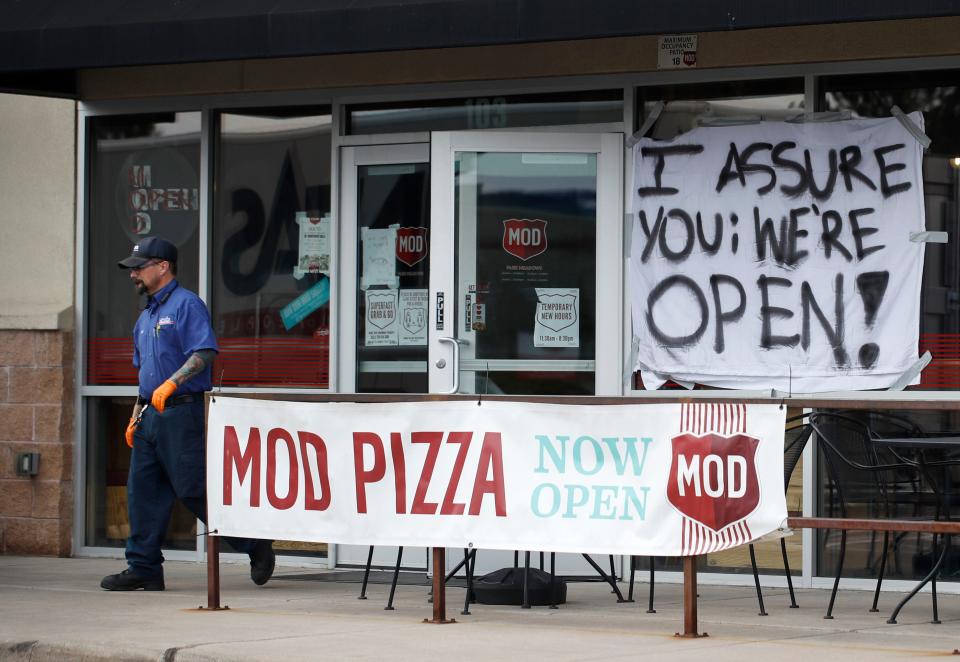Blanket COVID-19 liability shield for business is not the immunity we need in this crisis
As the number of new COVID-19 cases continues to rise at an alarming rate, federal, state and local officials are urging people to practice social distancing and wear masks. These simple commonsense measures are essential to restarting the economy in a way that will not worsen the pandemic.
Consequently, elected leaders are desperate for effective tools to encourage universal compliance while respecting civil liberties. The most effective tool — one which they already have at their disposal and which does not require any additional taxpayer funding — is potential civil liability for careless corporations and small business owners who, in rushing to reopen, can’t be bothered to protect their customers and employees from infection.
However, misguided legislation pending in Congress, and already passed by several states, would shield these bad actors from civil liability.
Senate Majority Leader Mitch McConnell, speaking in May about the pending coronavirus relief package, said that for Senate Republicans, "if there's any 'red line,' it's on litigation."
Odds of lawsuits are very low
But responsible businesses have no reason to fear lawsuits. The law requires merely that they exercise reasonable care. This simply means making cost-effective investments in social distancing and masks, following the latest guidance from public health officials and trade groups, and exercising common sense. Moreover, the prospect of a successful lawsuit is remote even for business owners who are careless.
Given the pervasiveness of COVID-19 in the general population, it will be difficult for people seeking to bring a lawsuit to prove that a particular business was the source of their infection. They may also be barred from recovery for having assumed the risk of infection if they knowingly and voluntarily patronized a business that was not exercising proper precautions.

However, despite the unlikelihood of being sued, the possibility of civil liability provides a powerful incentive for businesses that might otherwise be tempted to cut corners on safety to exercise reasonable care. Liability exposure is more likely to convince irresponsible corporate managers and business owners than even the direst warnings of public health officials. And liability exposure is more respectful of civil liberties than government mandates backed by inspections and penalties.
Rep. Joe Kennedy: COVID shows why we need legal aid for civil cases like evictions
McConnell and other supporters of immunity legislation contend it is necessary to prevent an avalanche of claims against responsible business owners that will hamper reopening the economy. However, such fears are unfounded. According to the best available data, of the 4,183 civil lawsuits related to COVID-19 filed in the United States between Jan. 1 and Aug. 8, only 18 have been filed by customers against businesses for personal injury and another 76 by employees for lack of personal protective equipment and exposure to COVID-19 at work. This small number of cases does not justify eliminating liability exposure for irresponsible companies.
Immunity legislation and its impact
Advocates for immunity legislation have also suggested that the proposals offer only limited immunity, since they do not prevent lawsuits against companies that are grossly negligent or intentionally harm their customers and employees. However, this argument, too, is misleading. The real problem facing the country is not that companies don’t care at all about their customers and employees or want to infect them with COVID-19. The more serious concern is that corporate managers and small business owners facing significant financial pressure from the crisis — including the risk of losing their businesses altogether — will not properly weigh the public health costs of their actions.
COVID precautions: Workplaces aren't ready for mass reopening. First we need standards to keep workers safe.
Liability exposure does not require anyone to provide absolute safety to their customers or employees, or to become infectious disease experts. It merely requires that everyone take cost-effective precautions, keep abreast of public health and trade group guidance, and use common sense when making decisions about when and how to reopen.
The threat that COVID-19 poses not only to public health but also to the economy more generally means that everyone — including the business community — must be mindful of the consequences their actions have for others. Immunity from civil liability is not the kind of immunity we need to end this crisis.
Timothy D. Lytton is a Distinguished University Professor and Professor of Law at Georgia State University College of Law. His latest book is last year's "Outbreak: Foodborne Illness and the Struggle for Food Safety."
You can read diverse opinions from our Board of Contributors and other writers on the Opinion front page, on Twitter @usatodayopinion and in our daily Opinion newsletter. To respond to a column, submit a comment to letters@usatoday.com.
This article originally appeared on USA TODAY: COVID-19 and business: Liability shields for businesses are not the answer

